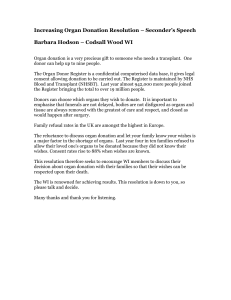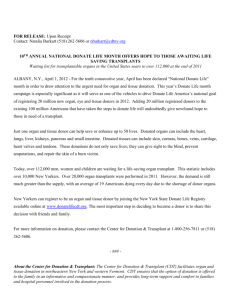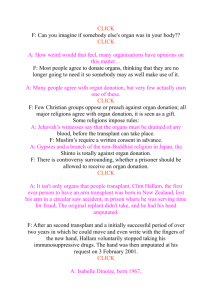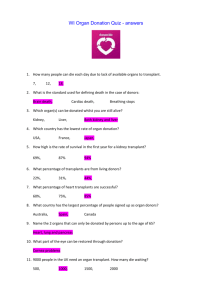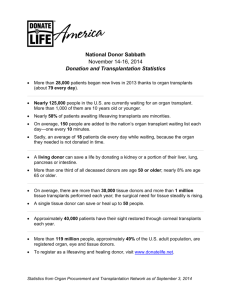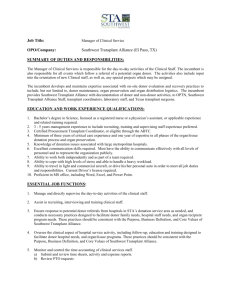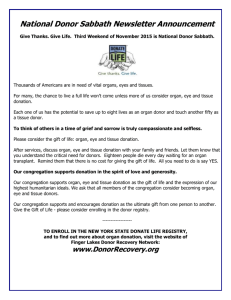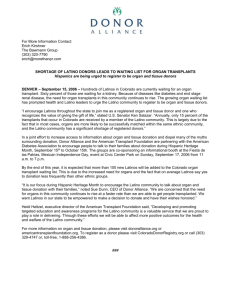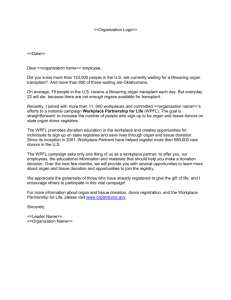Give the gift of life - register to be an organ donor
advertisement
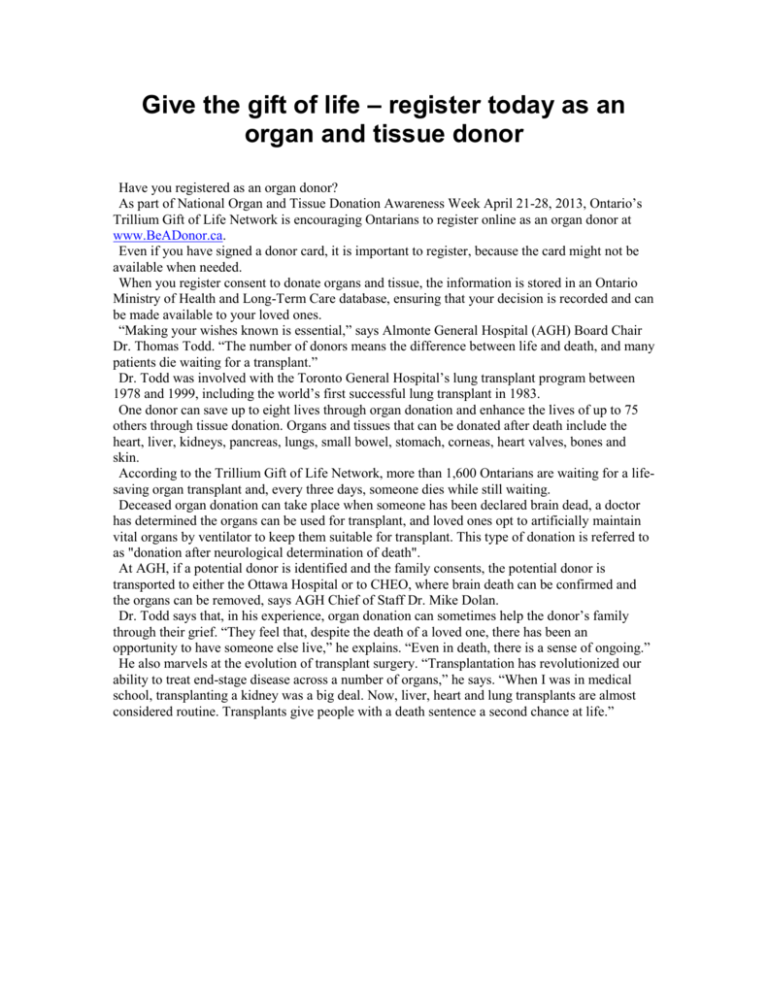
Give the gift of life – register today as an organ and tissue donor Have you registered as an organ donor? As part of National Organ and Tissue Donation Awareness Week April 21-28, 2013, Ontario’s Trillium Gift of Life Network is encouraging Ontarians to register online as an organ donor at www.BeADonor.ca. Even if you have signed a donor card, it is important to register, because the card might not be available when needed. When you register consent to donate organs and tissue, the information is stored in an Ontario Ministry of Health and Long-Term Care database, ensuring that your decision is recorded and can be made available to your loved ones. “Making your wishes known is essential,” says Almonte General Hospital (AGH) Board Chair Dr. Thomas Todd. “The number of donors means the difference between life and death, and many patients die waiting for a transplant.” Dr. Todd was involved with the Toronto General Hospital’s lung transplant program between 1978 and 1999, including the world’s first successful lung transplant in 1983. One donor can save up to eight lives through organ donation and enhance the lives of up to 75 others through tissue donation. Organs and tissues that can be donated after death include the heart, liver, kidneys, pancreas, lungs, small bowel, stomach, corneas, heart valves, bones and skin. According to the Trillium Gift of Life Network, more than 1,600 Ontarians are waiting for a lifesaving organ transplant and, every three days, someone dies while still waiting. Deceased organ donation can take place when someone has been declared brain dead, a doctor has determined the organs can be used for transplant, and loved ones opt to artificially maintain vital organs by ventilator to keep them suitable for transplant. This type of donation is referred to as "donation after neurological determination of death". At AGH, if a potential donor is identified and the family consents, the potential donor is transported to either the Ottawa Hospital or to CHEO, where brain death can be confirmed and the organs can be removed, says AGH Chief of Staff Dr. Mike Dolan. Dr. Todd says that, in his experience, organ donation can sometimes help the donor’s family through their grief. “They feel that, despite the death of a loved one, there has been an opportunity to have someone else live,” he explains. “Even in death, there is a sense of ongoing.” He also marvels at the evolution of transplant surgery. “Transplantation has revolutionized our ability to treat end-stage disease across a number of organs,” he says. “When I was in medical school, transplanting a kidney was a big deal. Now, liver, heart and lung transplants are almost considered routine. Transplants give people with a death sentence a second chance at life.”

